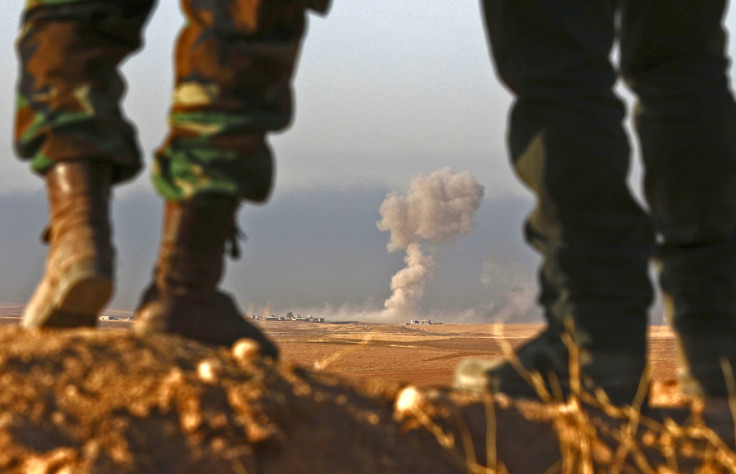These are the tactics British military hackers will use to disrupt Isis in Mosul
From intelligence gathering to disrupting online propaganda - will hacking help?
On 20 October, UK defence secretary Michael Fallon admitted for the first time that British military hackers are launching offensive cyberattacks against the Islamic State (Isis) to aid the ongoing efforts to retake the city of Mosul from the terror group.
"I can confirm we are using offensive cyber for the first time in this campaign," he said during a conference in London on "The Transformation of 21st Century Warfare" organised by the Royal United Services Institute (RUSI) and the Ministry of Defence (MoD).
Yet – perhaps unsurprising given the nature of the subject – there was little clarification on what these cyberattacks were, who exactly was orchestrating the campaign and how much oversight was in place to determine its legality.
Ewan Lawson, senior research fellow for military influence at RUSI, told IBTimes UK the announcement was important as it was "the first time a senior official or politician has indicated that the UK is using an offensive cyber capability rather than talking about developing one."
Lawson, who has previously developed "cyberwarfare capabilities" for the MoD's Joint Forces Command, said the attacks would be targeted against Islamic State (Daesh) computer networks and used to disrupt the group's online recruitment attempts.
He said: "The intent will be to disrupt these networks and this can be achieved through taking them down or inserting spoof messages, either of which is potentially achievable.
"Oversight will be provided by the standing arrangements for targeting which take into account things like international humanitarian law around proportionality and necessity as well as considerations of collateral damage. These have been developed over recent years to deal with the specific challenges raised by cyber."
Matt Tait, a former Google Project Zero researcher and information security specialist for GCHQ, told IBTimes UK the tactics used are likely to include "intercepting or disrupting enemy communications, and providing intelligence to the folks on the ground."

He elaborated: "That might mean tactical intelligence; it might mean making the Iraqi military aware of enemy strategy. And it might mean degrading [Isis] communications generally so that they can't effectively broadcast for propaganda purposes, or coordinate tactically or strategically on the ground.
"I think it's interesting that Fallon said that cyberattacks were happening in support of the Mosul offensive – I believe that's the first time a UK defence secretary has admitted the use of cyberattacks in support of a ground offensive while the ground offensive is still ongoing. But otherwise the admission is fairly unremarkable."
In what has evolved into the largest military operation in the Middle East since 2003, Britain has been supporting US-backed Kurdish and Iraqi forces as they continue their offensive on Mosul in an attempt to drive out Isis fighters.
Fallon's statement comes after US military officials at the Pentagon also claimed to be ramping up an offensive cyberattack campaign against the terror group to disrupt the its ability to spread propaganda, launch recruitment drives and conduct financial transactions via the internet.
Unlike its US counterparts, the UK military has been more reserved in how much it chooses to share about its cyberattack capabilities. When IBTimes UK contacted British spy agency GCHQ to ask what forms of cyberattack are likely to be in use it pointed towards a November 2015 speech made by then-chancellor of the exchequer George Osborne.
"We reserve the right to respond to a cyberattack in any way that we choose," Osborne said. "And we are ensuring that we have at our disposal the tools and capabilities we need to respond as we need to protect this nation, in cyberspace just as in the physical realm."
He continued: "We are building our own offensive cyber capability – a dedicated ability to counter-attack in cyberspace [...] we will now commit the resources to develop and improve this capability over the next five years.
"The threats to our country in cyber space come from a range of places – from individual hackers, criminal gangs, terrorist groups and hostile powers. To all of them I have a clear message. We will defend ourselves. But we will also take the fight to you too."
This article was updated to clearly attribute a comment to GCHQ
© Copyright IBTimes 2024. All rights reserved.






